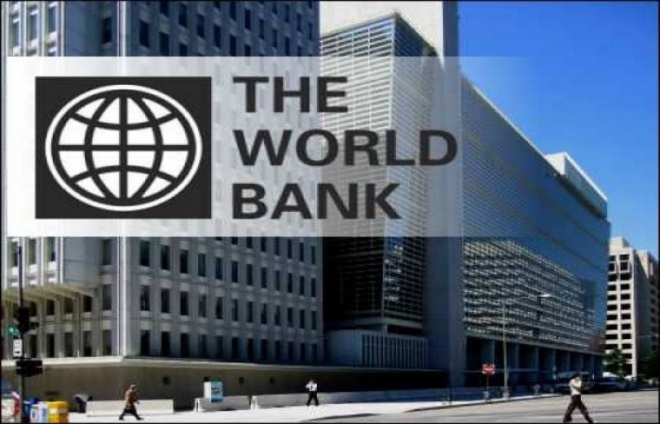The World Bank has maintained its 1.6% Gross Domestic Product (GDP) growth forecast for Ghana in 2023, far lower than the expected 3.2% for Sub-Saharan Africa.
This places it in the 42nd position in Sub-Saharan Africa. The International Monetary Fund also projected a 1.6% growth rate for Ghana in 2023.
According to its June 2023 Global Economic Prospects Report, Ghana’s economy is however projected to expand by 2.9% in 2024.
The report stated that the slowdown in the economy is due to the challenges facing the economy, as the Ghana government is undertaking an International Monetary Fund support programme.
“In Ghana, more timely data highlight the weakness of economic activity amid the deleterious global shocks and heightened macroeconomic instability”.
Five African countries, Malawi (1.4%), Sudan (0.4%), South Africa (0.3%), South Sudan (-0.4%) and Equatorial Guinea (-3.7%) are expected to grow lower than Ghana in 2023.

Risks to outlook
The World Bank said its baseline projections remain subject to multiple downside risks amid uncertainty about developments in global commodity markets, the degree of additional global and domestic policy tightening needed to subdue persistent inflation, and the resilience of the world economy and global financial system to a prolonged period of tight monetary policies.
It pointed out that commodity prices may remain unusually volatile and vulnerable to further shocks if disruptions to the supply of major commodities worsen—for instance, due to intensifying geopolitical tensions or conflicts. Furthermore, global activity may decelerate faster than envisioned if the reopening of China’s economy fails to generate a durable recovery.
Sub-Saharan Africa’s growth to slow down to 3.3%
Growth in Sub-Saharan Africa (SSA) is expected to slow from 3.7% in 2022 to 3.2% this year—a 0.4 percentage point downgrade from January forecasts—with a moderate improvement to 3.9% next year.
Over half of the 2023 downgrade, it said, is attributable to an abrupt slowdown in South Africa. However, downgrades are widespread across energy and metal producers, and non-resource-rich countries.
Excluding South Africa, the Bretton Wood institution, however, said growth in SSA is expected to slow from 4.2% in 2022 to 3.9% this year.
Latest Stories
-
NAPO commissions library to honour Atta-Mills’ memory
10 mins -
OmniBSIC Bank champions health and wellness with thriving community walk
12 mins -
Kora Wearables unveils Neo: The Ultimate Smartwatch for Ghana’s tech-savvy and health-conscious users
16 mins -
NDC supports Dampare’s ‘no guns at polling stations’ directive
19 mins -
Police officer interdicted after video of assault goes viral
36 mins -
KNUST’s Prof. Reginald Annan named first African recipient of World Cancer Research Fund
37 mins -
George Twum-Barimah-Adu pledges inclusive cabinet with Minority and Majority leaders
1 hour -
Labourer jailed 5 years for inflicting cutlass wounds on businessman
1 hour -
Parliament urged to fast-track passage of Road Traffic Amendment Bill
1 hour -
Mr Daniel Kofi Asante aka Electrician
1 hour -
Minerals Commission, Solidaridad unveils forum to tackle child labour in mining sector
2 hours -
Election 2024: Engagement with security services productive – NDC
2 hours -
Retain NPP for the good of Ghana – Rebecca Akufo-Addo
2 hours -
‘Let’s work together to improve sanitation, promote health outcome’ – Sector Minister urges
2 hours -
Ellembelle MP cuts sod for six-unit classroom block at Nkroful Agric SHS
2 hours

